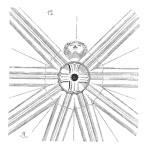
Leadership w/ Tom Moriarty
Thomas J. Moriarty, PE, CMRP is president of Alidade Maintenance Engineering and Reliability, Inc. (Alidade MER). Founded in 2004, its mission is to help others lead full and satisfying lives through organizational reliability and productive leadership; particularly in physical asset management, operations, maintenance and reliability engineering.






 Ask a question or send along a comment.
Please login to view and use the contact form.
Ask a question or send along a comment.
Please login to view and use the contact form.